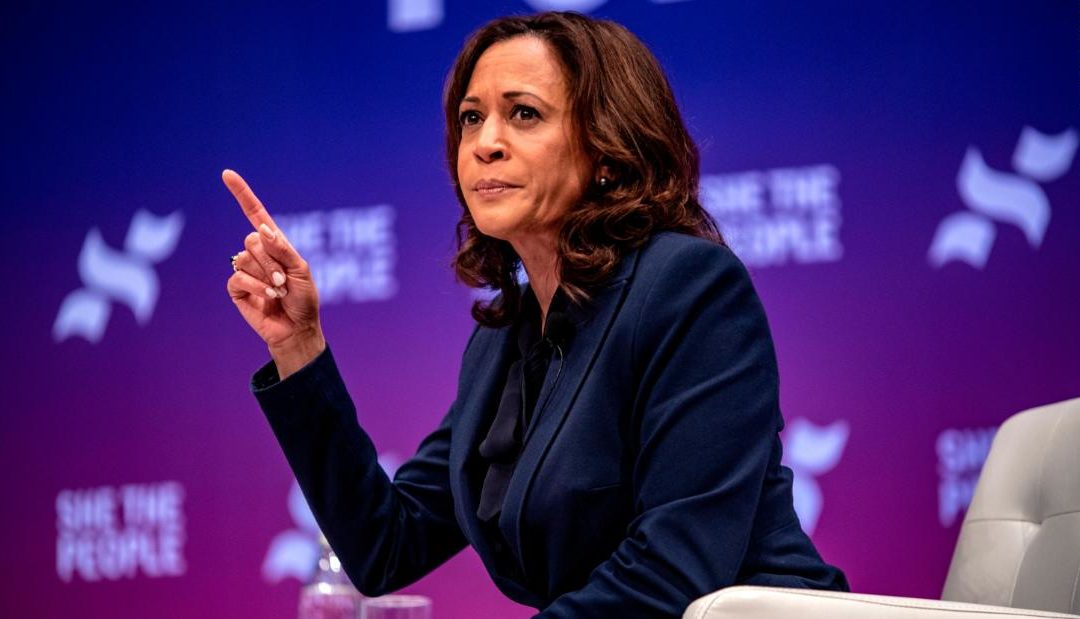(CNN)Democratic presidential candidate Kamala Harris on Monday unveiled her plan to close the wage gap by fining companies that fail to ensure they are paying men and women equally.
The plan seeks to change where the onus falls in the current system: Instead of requiring employees to come forward to complain about equal pay, companies would now be required to submit data on equal pay each year to comply with new standards.
In an interview with CNN on Sunday, shortly before Harris headlined a town hall in Los Angeles, the California Democrat called pay equity a “really big issue” where “if you lift up the economic status of women, you lift up the economic status of families and communities and all of society benefits.”
“What I am proposing is we shift the burden: It should not be on that working woman to prove it, it should instead be on that large corporation to prove they’re paying people for equal work equally,” Harris said. “It’s that simple, it’s literally that simple. And this, then, is not only about fairness and equality, it’s about transparency. Show us what you got. That’s it.”
According to the latest Census Bureau data, the average woman working full time made roughly 80 cents for every dollar a man made in 2017. That gap was significantly wider for black and Hispanic women.
The heart of Harris’ proposal is a requirement that corporations obtain an “Equal Pay Certification” to prove that they are not paying women less than men for the same kind of work. In order to receive that certification, the plan states that “companies must demonstrate they have eliminated pay disparities between women and men who are doing work of equal value” and, if gaps do exist, they must prove they are based on “merit, performance, or seniority — not gender.”
“This will radically change the way we enforce equal pay in America,” reads the plan. “Our current equal pay laws rely exclusively on proving instances of individual discrimination and place the burden entirely on employees to hold big corporations accountable. … Under our plan, for the first time in American history, companies will be held responsible for demonstrating they are not engaging in pay discrimination.”
Under the plan, companies with 100 or more employees will be required to obtain a certification from the Equal Employment Opportunity Commission within three years of the plan’s passage by handing over employment data to the government. Companies with more than 500 employees will have two years to receive the certification. And each company will be required to display whether they met the certification on their company’s website.
Those companies that do not receive the certification will be met with a stiff penalty: For every 1% gap in pay between men and women that persists after the EEOC accounts for experience and job titles, a Harris administration would fine companies 1% of their daily profits during that fiscal year.
The Harris campaign estimates that the punishment for wage disparities would generate around $180 billion in 10 years, money that Harris’ campaign said would be invested in funding the FAMILY Act, a plan Harris backs to ensure paid family leave and medical leave.
By taking on equal pay with her third major policy rollout of the campaign, Harris is jumping into a politically important debate that extends back to Hillary Clinton’s 2016 run, when the then-Democratic nominee regularly spoke about how her presidency would deliver “equal pay for equal work.”
Harris said this proposal falls in line with her previous policy rollouts — including her tax relief for middle class families — because it “really is about lifting families up.”
“The reality of it is that the economy of America is not working for working people, it’s just not,” Harris said.
“This is a very big issue in our country and deserves all the resources and attention that anyone would expect when we are talking about whether or not people are paid for the work they do,” she added. “It’s a simple American value, as far as I’m concerned, pay people for the work they do.”
Harris, as she has done of late on a series of issues, has said she would implement this plan as president with or without the help of Congress — an acknowledgment that even if Democrats win the presidency in 2020, they could easily not take control of the Senate.
Harris’ plan states that, as president, she would use an executive action to force any company looking to bid on federal contracts of more than $500,000 to comply with the new standards and, for smaller contracts, companies will be given preferential treatment if they are in compliance with the equal pay standards. While an executive action allows Harris to implement the plan to some degree, it would significantly dampen the impact.
Harris’ plan will almost certainly be met with condemnation from the business community, which will likely see the proposal as another government regulation with which it must comply.
Harris said on Sunday that she is ready for the fight.
“I’ve been in those fights before,” said the former attorney general of California. “I’ve been in the fights with the big banks around the foreclosure crisis that hit California and Nevada and a bunch of states around our country. I’ve been in those fights before.”
